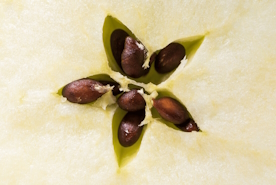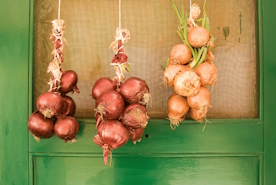
Call 0330 880 3600 Calls may be monitored or recorded. Opening Times.
- TRAVEL INSURANCE
- COVID-19 ENHANCED COVER
- More Options
- Help & Advice
- Existing Customers

Call 0330 880 3600 Calls may be monitored or recorded. Opening Times.


At the turn of the new year in Romania, you’ll find processions of people dressed in bear skins dancing to pan flutes and stomping to drums. Now bear with us (pun intended), there’s method to this madness! What was once a pagan ritual to ward off bad spirits, the Dance of the Bear is known as ‘Ursul’ and holds deep spiritual significance. During the performance, the ‘bears’ are shown to roll over and die, only to be resurrected again. This represents the hibernation of the bear and the waking up in spring, bringing to mind the cycle of life and new beginnings - interesting, eh?
 Brazil: Wear White and Jump Waves
Brazil: Wear White and Jump WavesSimply put, the colour white is believed to represent peace and purity - so wearing it as the year ends is said to invite luck, prosperity, and happiness in the year to follow. For an even luckier year, it’s a good idea to head to the beach as well. Throw a white flower into the water to honour the sea goddess Lemanjá, then jump over seven waves in your white clothing while making a wish per wave. Surely, this’ll make all your dreams come true?
As the clock strikes midnight in Madrid, the following twelve chimes will see millions of people across the world hurriedly shoving grapes into their mouths. Most participants place a grape in their mouth on the chime, so that’s 12 grapes in 12 seconds! Especially in Spain, this tradition is said to ward off bad spirits and witches for the year to come - in fact, not doing so is often said to be bad luck too.
 Turkey: Have a Smashing Time
Turkey: Have a Smashing TimeThe pomegranate is massively symbolic in the Middle East: the red represents life and fertility, the seeds represent abundance and prosperity, and the pomegranate itself is a symbol of good health due to its medicinal properties. Homes all over Turkey display the fruit year-round, but on the last day of the year, a pomegranate is smashed on your doorstep, to bring forth success and good fortune. The harder the throw, the more pieces and seeds, and therefore the better your luck!
Circles are an important part of the new year in Filipino culture, so eating round fruits, jingling coins in your pocket, and wearing polka dots are all an absolute must for December the 31st. The shape is said to bring good luck, prosperity, and fortune for the year to come.
 Ecuador: Los Años Viejos, The Old Years
Ecuador: Los Años Viejos, The Old YearsIt’s all about out with the old and in with the new when it comes to los años viejos! On the final day of the year, people celebrate by burning effigies in the form of a famous figure, cartoon, someone you dislike, or even someone who’s passed. They’re set alight with notes attached to them, outlining what they represent, why they should be burned, the regrets of last year, and the hopes of the new. The idea is to replace the negative of the past with the positive of the future, while a crowd cheers on New Year’s Eve.
Across Europe pigs are considered a lucky animal, although the origins of this belief are hazy. Perhaps this dates back to the Middle Ages: pigs were easy to feed and easy to reproduce, so if you could keep pigs you were less likely to go hungry. Or it could come from the fact that they move forward while rooting for food, which is a good direction to look in as the new year approaches. Whatever the history or symbolism, it’s popular to exchange marzipan pigs with your fellow German - the phrase ‘Schwein haben’ translates as ‘to have a pig’, and is supposedly used synonymously with the phrase ‘good luck!’.
 Greece: Wake Up to an Onion
Greece: Wake Up to an OnionAncient Greek culture dictates that onions represent good health and fertility. This tradition comes from the onion-like plants (‘squills’) which grow in Crete, which continue to grow even after you uproot them. This quality represents strength, so hanging a squill or onion in your home is thought to signify resilience and rebirth. It’s important to do this after church on New Year’s Day, but make sure you have an onion around to bop your kids on the head that morning! How else will they wake up in time for the service?
Now this next one we think might actually catch on in the UK. In Russia it’s believed that in the 12 seconds before the clock strikes midnight on New Year’s Eve, a sort-of celestial gateway is opened, meaning you have just enough time to ask a higher power to grant one sacred wish. To do this you have to write your wish on a small scrap of paper, set fire to it, and drop it in your glass of champagne. Drink the champagne (ashes and all!) and your wish will come true.
